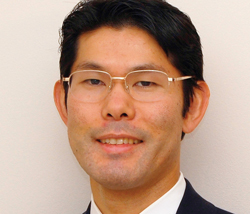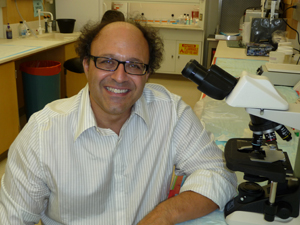Alzheimer’s disease is the sixth leading cause of death in Nebraska, and the state has the highest rates of Parkinson’s, per resident, in the United States. Combined with the increasing number of elderly in the state, it’s easy to see that the need for improved diagnostics and targeted therapies to combat these and other deadly brain diseases is paramount.
On Friday, the University of Nebraska Board of Regents approved the establishment of two new UNMC centers dedicated to finding new ways of treating neurodegenerative disease.
|
The Center for Neurodegenerative Disorders evolved from the former Center for Neurovirology and Neurodegenerative Disorders, established in 1997 under the leadership of Howard Gendelman, M.D., director of the UNMC Department of Pharmacology and Experimental Neuroscience.
“To think that we have evolved from a small laboratory to a center then to a department and have given birth to now others with broad leadership, national prominence and sustained federal funding is simply a dream realized,” said Dr. Gendelman. “This is just the beginning. It is our ultimate destination to establish a mind-brain institute. With an evolving reputation in neuropathogenesis, neuronanomedicine, molecular neuroscience, and neuroproteomics we are poised to do great things in the hopes of someday winning the battle over these devastating neurodegenerative disorders.”
Dr. Gendelman said this can be achieved with focused centers that have the ability to change emphasis based on need, work with evolving companies and bridge clinical partnerships.
The Center for Integrative and Translational Neuroscience is the link between basic science discoveries and translational implementation in the clinic.
“It is our vision to make UNMC a world leader in the treatment of neurodegenerative disorders such as Parkinson’s and Alzheimer’s diseases,” Dr. Gendelman said.
Both centers were built from major research gains in neuroscience made at UNMC.
 |
Tsuneya Ikezu, M.D., Ph.D. |
Dr. Ikezu said the center will enhance the research infrastructure, provide an administrative home for interdepartmental graduate and postdoctoral training and be a conduit between the academic and private sectors.
Howard Fox, M.D., Ph.D., a professor in the department of pharmacology and experimental neuroscience, will direct the Center for Integrative and Translational Neuroscience. The center will focus on translational medicine and take the fruits of neurodegenerative research from the bench to the bedside.
 |
Howard Fox, M.D., Ph.D. |
“Neuroscience is now at the stage where we can move our laboratory findings up through molecular, cell culture and animal models to people, so we can alleviate the burden of these neurodegenerative illnesses as soon as possible,” Dr. Fox said. “Advances in technology now allow us to diagnose diseases of the brain earlier and more exactly. It is at these early stages that treatments would likely be most effective.”